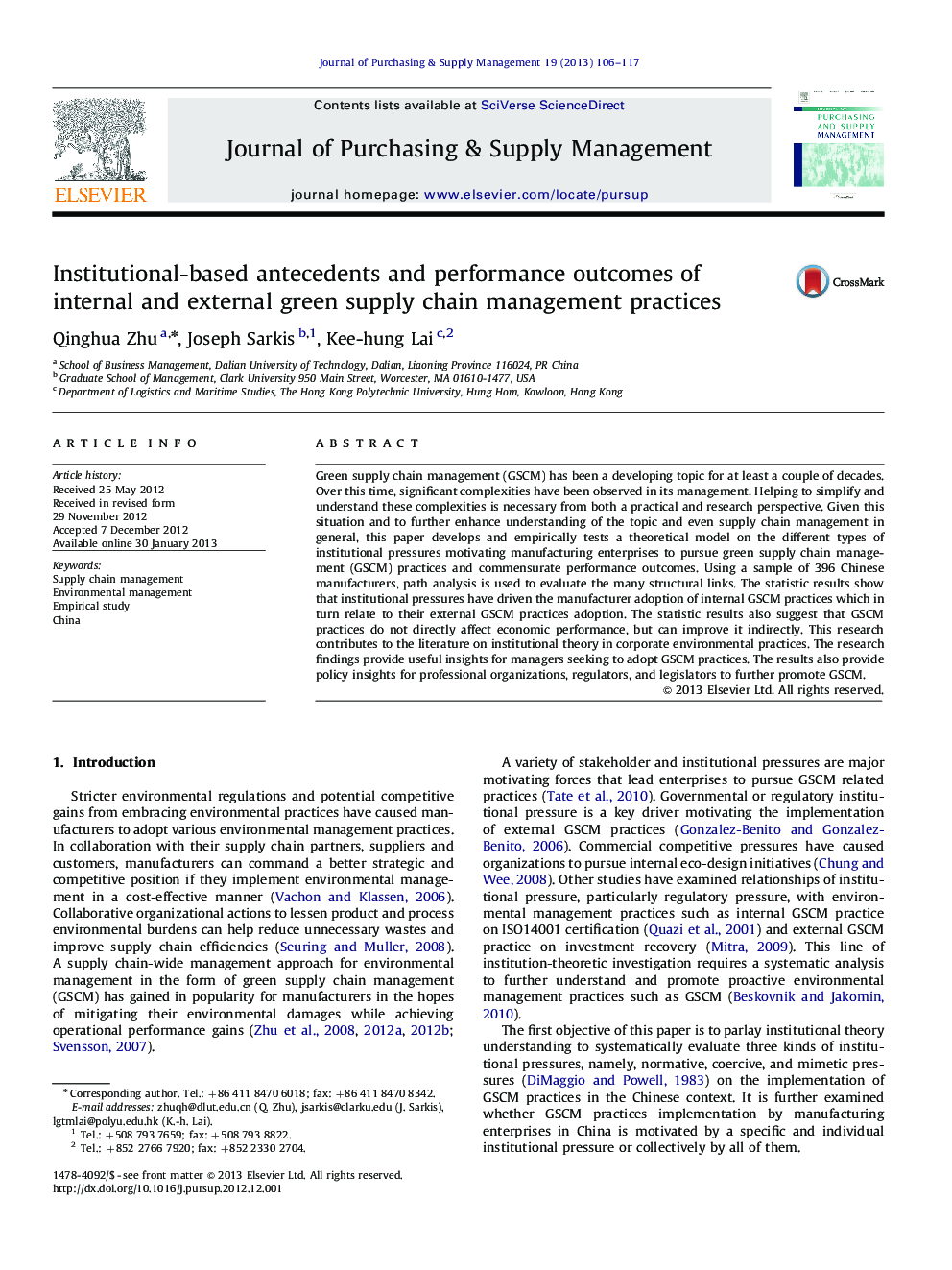| Article ID | Journal | Published Year | Pages | File Type |
|---|---|---|---|---|
| 1020818 | Journal of Purchasing and Supply Management | 2013 | 12 Pages |
Green supply chain management (GSCM) has been a developing topic for at least a couple of decades. Over this time, significant complexities have been observed in its management. Helping to simplify and understand these complexities is necessary from both a practical and research perspective. Given this situation and to further enhance understanding of the topic and even supply chain management in general, this paper develops and empirically tests a theoretical model on the different types of institutional pressures motivating manufacturing enterprises to pursue green supply chain management (GSCM) practices and commensurate performance outcomes. Using a sample of 396 Chinese manufacturers, path analysis is used to evaluate the many structural links. The statistic results show that institutional pressures have driven the manufacturer adoption of internal GSCM practices which in turn relate to their external GSCM practices adoption. The statistic results also suggest that GSCM practices do not directly affect economic performance, but can improve it indirectly. This research contributes to the literature on institutional theory in corporate environmental practices. The research findings provide useful insights for managers seeking to adopt GSCM practices. The results also provide policy insights for professional organizations, regulators, and legislators to further promote GSCM.
► We develop a theoretical model on economic gains of green supply chain management. ► We empirically test a model of green supply chain drivers, practice and performance. ► Institutional pressure brings green supply chain management practice and performance. ► Manufacturers' managers should respond to pressures for environmental improvements. ► Policy makers should further motivate manufacturers to green their supply chains.
